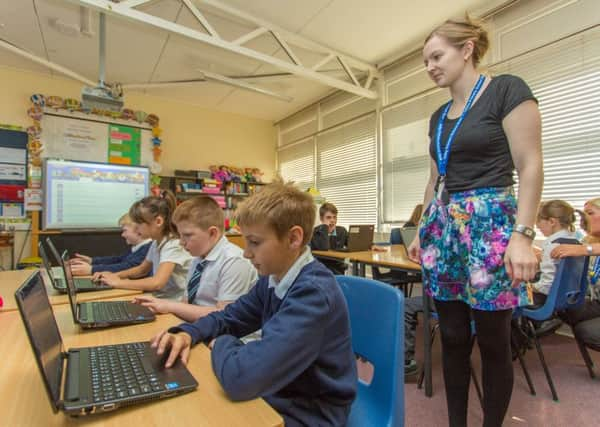Children held back at school by everyday costs


Youngsters are now being put at risk of missing out on opportunities at school and feeling “different, excluded and unhappy”, a report by poverty campaigners has found.
John Dickie, Director of the Child Poverty Action Group (CPAG), which commissioned the study said: “No child should ever miss out or be made to feel awkward at school just because their families are struggling on a low income but our work tells that all too often they do.
Advertisement
Hide AdAdvertisement
Hide Ad“That’s why we have been absolutely delighted to work with education and health services in Glasgow to identify the cost barriers children face at school, and are even more pleased that individual schools and the council are already taking practical action to remove those barriers.”
Among the costs are school uniforms and transport costs associated with getting the bus to school.
Even the friendships which youngsters form are all dependent on income levels of the family, according to the report entitled The Cost of the School Day.
Even modest trips can be difficult to afford for families on low incomes and expensive trips abroad can “prove impossible” it adds.
School clubs and after-school activities, as well as homework which requires internet access, are all factors which can hold children back.
The report is based on the experiences of 340 young people and 120 school staff across eight primary and secondary schools in Glasgow.
More than one in five (210,000) children across Scotland are officially recognised as living in poverty.
In Glasgow, it is estimated that one in three (over 36,000) children are in poverty.
Advertisement
Hide AdAdvertisement
Hide AdMs Sturgeon recently pledged to close the attainment gap between rich and poor areas and the report warns that understanding the financial barriers that poorer children face throughout the school day is “integral to this agenda.”
Fiona Moss, Head of Health Improvement at Glasgow Health and Social Care Partnership, said: “We must reduce child poverty to improve the health and well-being of all children in the city.
“This work highlights action for schools, and others, to reduce the financial burdens of school life.
“The research captured stories of how well children manage poverty at school, but also reveals the guilt that children, and their families, can have about the situation they are in. This research starts the conversations needed on how we can all work to change the perceptions and experiences of children experiencing poverty for the better.”
Glasgow City Council has already used the findings of the research to look again at its distance criteria for free home school transport in the city to minimise the financial burdens that families from poorer backgrounds face.